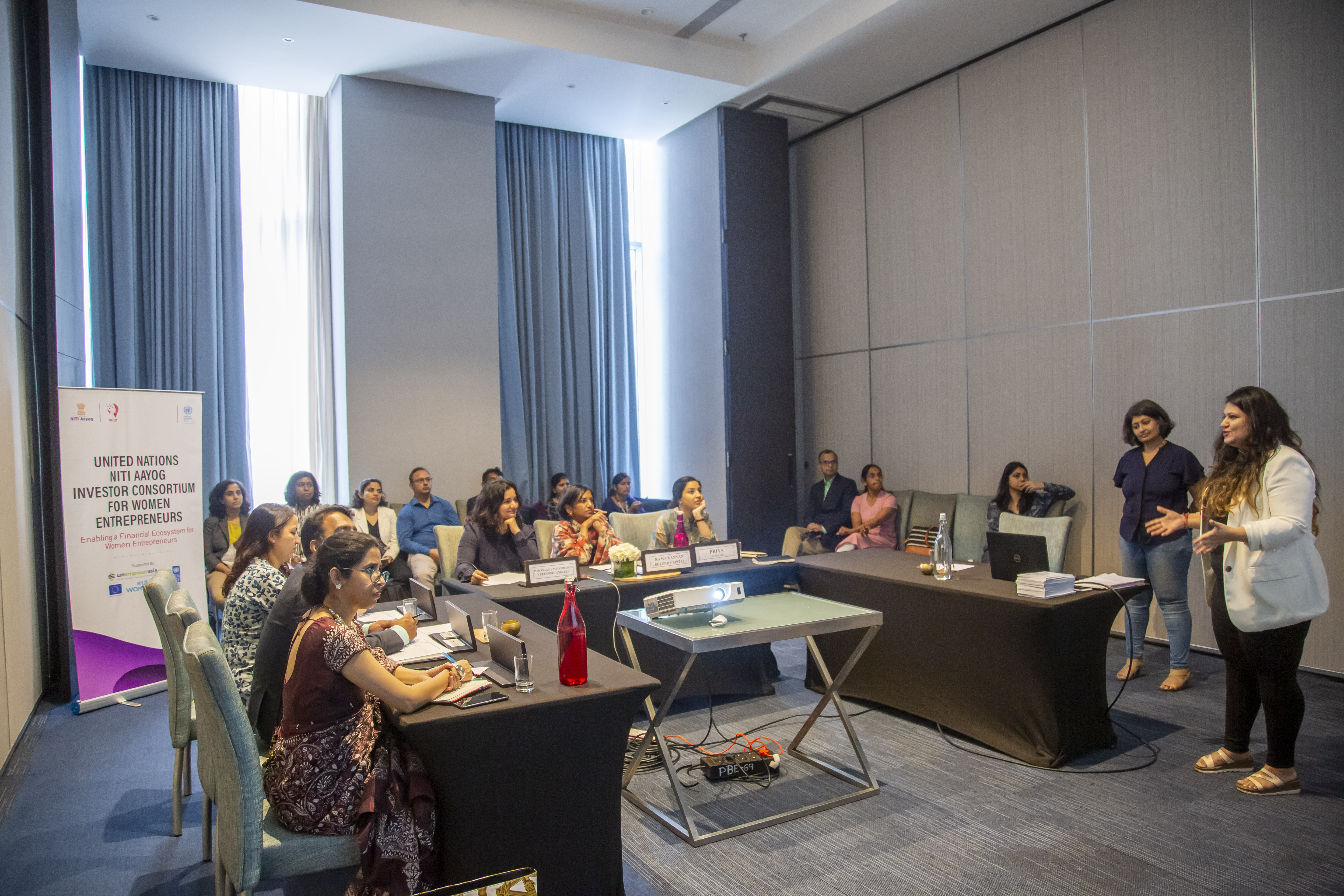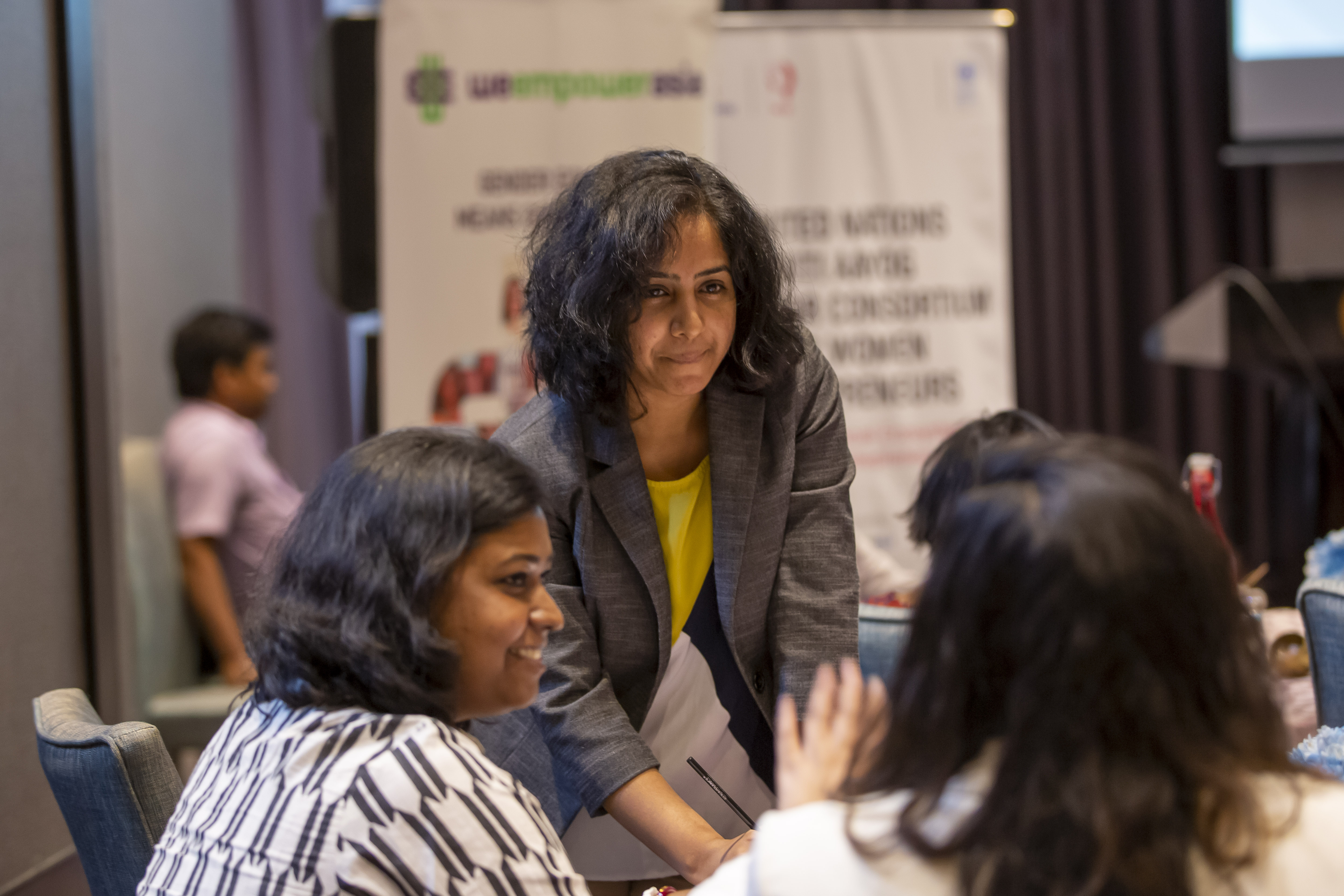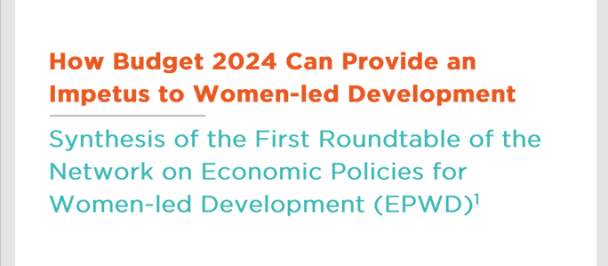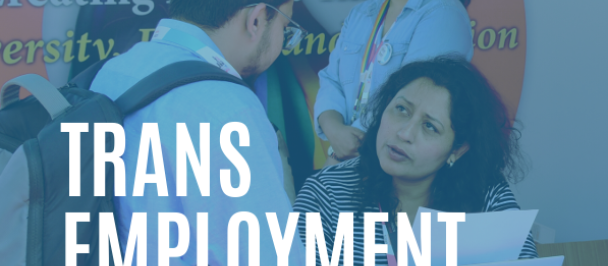By Sayantani Mukherjee
Women Entrepreneurs, India’s Game Changers
March 6, 2020
I recently met a young woman entrepreneur, Mansi Chadha, 35 in Bangalore who told me of the biases she faced when she decided to start her own business. And that too, when Mansi is from a cosmopolitan and so-called “modern” family. So, you can well imagine how challenging it must be for entrepreneurs from rural and semi-urban areas.
While we have often heard inspiring mantras like “You cannot run a business without taking risks”, it is not perceived in the same way when it comes to supporting the women entrepreneurs.
Despite high growth potential, being a women entrepreneur isn’t easy. Start-ups in general come with their own set of challenges and issues. As entrepreneurs, women have even bigger mountains to climb. Having worked with them over the last couple of years, I have often heard and witnessed their stories of struggle. Persisting gender biases and preconceived notions where ambition among women is often frowned upon, it is not easy for them to step into the world of business.
Lack of family support, inadequate systems around accessing finance, limited access to education, technology, and insufficient collateral rights are just some of the challenges. This clearly reflects in the numbers as well. The MasterCard 2018 Index of Women Entrepreneurs ranks India 52nd out of 57 countries surveyed, while the World Bank report (2018) ranks India 120th among 131 countries in terms of female labour-force participation.
This is despite the fact that gender equality and economic empowerment of women is at the core of the 2030 Agenda. Investing in women is good for everyone. Because if you invest in a woman, she invests back in her family, children and the society at large. Women entrepreneurs have the power to bring about positive outcomes for everyone and for creation of employment opportunities.
According to the sixth economic Census, an estimated 13.5 million to 15.7 million women owned and controlled enterprises are creating direct employment for 22 million to 27 million people in India[1]
Thanks to my work, I have had the chance to interact with the mentors, investors and the women entrepreneurs themselves. The most relevant support that everyone believes could change the face of women entrepreneurship are: Access to Markets; Access to Mentors and Access to Finance.
Easy and equal access to markets is a pre-requisite for any successful business. Knowledge and access to markets for women entrepreneurs means greater access to suppliers, producers and buyers for their products and services. The Women Entrepreneurship Platform (WEP) housed at NITI Aayog is one such portal that helps bring women entrepreneurs together from diverse walks of life to create a continuous forum for exchange of ideas and peer learning.
Capacity building and mentorship are critical for any business to succeed so a network of mentors and experts, along with incubation programmes to provide handholding support can help the women entrepreneurs to explore their optimum potential.
Financial institutions can also work towards developing tailor-made products for women entrepreneurs along with strengthening fund disbursement processes. It is also important that impact investment and Venture Fund led ecosystem should collectively put in efforts to advocate easy and greater access to funding for women-led start-ups.
We at UNDP have also been addressing the most pertinent needs of women entrepreneurs and exploring solutions. One such initiative is the United Nations-NITI Aayog Investor Consortium for Women Entrepreneurs. This initiative led by UNDP and UN-Women and the Women Entrepreneurial Platform of NITI Aayog (WEP) have established the investors consortium- a platform which advocates for reducing gender disparities in start-up investments.
Around 50 women entrepreneurs till date have had the chance to showcase their work and pitch their ideas for funding and mentorship to several leading investors.
One of the entrepreneurs at the Investor Consortium workshop was Shailaja Rangarajan, who runs Rimagined[2], an online marketplace for upcycled products. She shared, “I hope to continue the association to reach out to the right audience and investors as well as network with other entrepreneurs to learn about latest innovations and markets”. Through the consortium, we are confident in our efforts to reach out to several other entrepreneurs like Shailaja across the country.
I strongly believe that the success of women like Shailaja will inspire the community of women entrepreneurs growing and thriving in India in the years to come.
The writer is Women’s Entrepreneurship & Financial Inclusion Associate at UNDP India

 Locations
Locations





